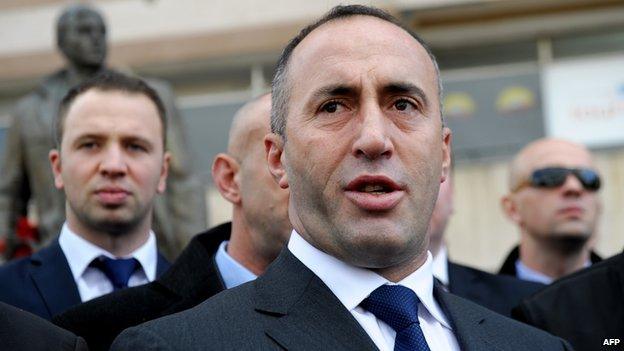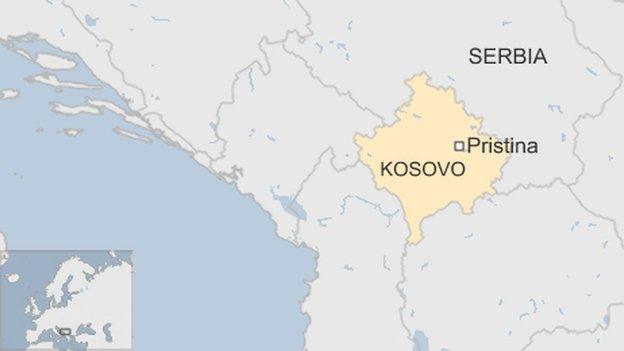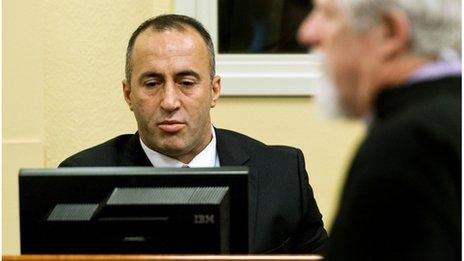Ramush Haradinaj, Kosovo ex-PM, detained on war crimes charges
- Published

Kosovo's ex-leader denies allegations of involvement in war crimes
Kosovo's former Prime Minister Ramush Haradinaj has been detained in Slovenia over an investigation into war crimes during the late 1990s conflict.
Mr Haradinaj, now an opposition leader, was blocked from boarding a flight at Ljubljana Airport, his party said.
He resigned as Kosovo leader in 2004 to stand trial at a UN court for war crimes, though he was later acquitted.
Mr Haradinaj denies allegations he oversaw a campaign of torture and murder against Serbs and their allies.
Slovenian police said they were executing a 2006 Interpol arrest warrant issued at the request of Serbia over his time as rebel commander in the 1998-99 war.
'Very offensive'
War crimes prosecutors in Belgrade are investigating Kosovo's former leader over three cases dating to the conflict of the late 1990s, involving the deaths of at least 60 people.
"This attitude and act by the Slovenian state is unacceptable and very offensive for me and for Kosovo," Mr Haradinaj was quoted as saying by a senior official in his party, the Alliance for the Future of Kosovo, after his arrest in the Slovenian capital on Wednesday.

The government in Kosovo said it was concerned that "such warrants are still treated as valid in certain countries, despite the fact that... Haradinaj's innocence was proven... by the international justice," the AFP news agency reports.
Meanwhile, his party has called on the Slovenian authorities to allow Mr Haradinaj to continue his journey.
He served only 100 days in power before he stepped down in early 2005 to deal with an indictment at the war crimes tribunal in The Hague. He was acquitted of the charges in 2012 after standing two trials.
It is the second time in a week that people wanted for war crimes in Serbia have been arrested elsewhere, says the BBC's Guy Delauney in Belgrade. Last Wednesday, Swiss police detained a former Bosniak Muslim army commander.
Kosovo unilaterally declared independence from Serbia in February 2008, after years of strained relations between its Serb and Albanian inhabitants.
- Published29 November 2012

- Published29 November 2012
